Jiayu Peng
Incoming Asst. Prof. @ University at Buffalo, working on ⚛️ + 🤖 →⚡ + 🧪

I am an incoming Assistant Professor (starting Jan. 2025) in the Department of Materials Design and Innovation at the University at Buffalo. Currently, I am a Postdoctoral Associate in the Department of Materials Science and Engineering at the Massachusetts Institute of Technology (MIT) with Prof. Rafael Gómez-Bombarelli. I obtained my Ph.D. in Materials Science and Engineering from MIT in 2022, advised by Prof. Yang Shao-Horn. I graduated with a B.Sc. in Applied Physics from the University of Science and Technology of China in 2017.
My prior work has led to early-career awards and recognitions, such as the Graduate Student Award from the Materials Research Society and the IUPAC-Zhejiang NHU International Award for Advancements in Green Chemistry for Young Chemists from the International Union of Pure and Applied Chemistry.
My research group will center on understanding and resolving the formidable structural, compositional, and mechanistic complexities of materials and interfaces under harsh electrochemical reaction conditions. We will build physics-based and data-driven machine-learning methods that inherently capture the fundamental laws of materials thermodynamics and surface kinetics from atomistic simulations and electrochemistry. Through this research program, we aim to empower all members to collectively construct AI-facilitated, materials-centric solutions to combat the most recalcitrant societal challenges in sustainability and decarbonization.
Selected Publications
† denotes equal contribution | * denotes corresponding authorship-
 Uniting Activity Design Principles of Anode Catalysts for Direct Liquid Fuel CellsEES Catalysis (In press)
Uniting Activity Design Principles of Anode Catalysts for Direct Liquid Fuel CellsEES Catalysis (In press) -
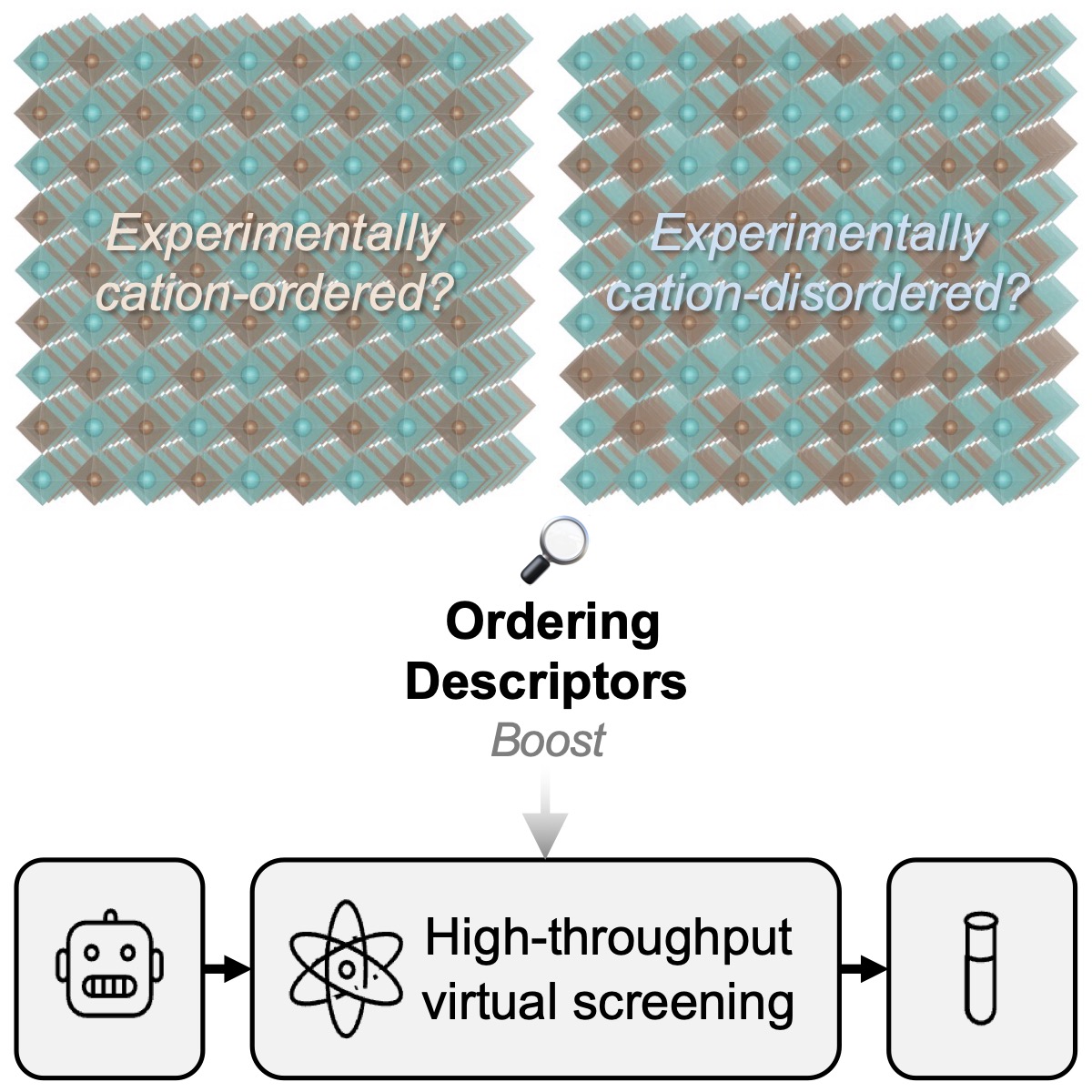 Data-Driven Physics-Informed Descriptors of Cation Ordering in Multicomponent Perovskite OxidesCell Reports Physical Science (2024)
Data-Driven Physics-Informed Descriptors of Cation Ordering in Multicomponent Perovskite OxidesCell Reports Physical Science (2024) -
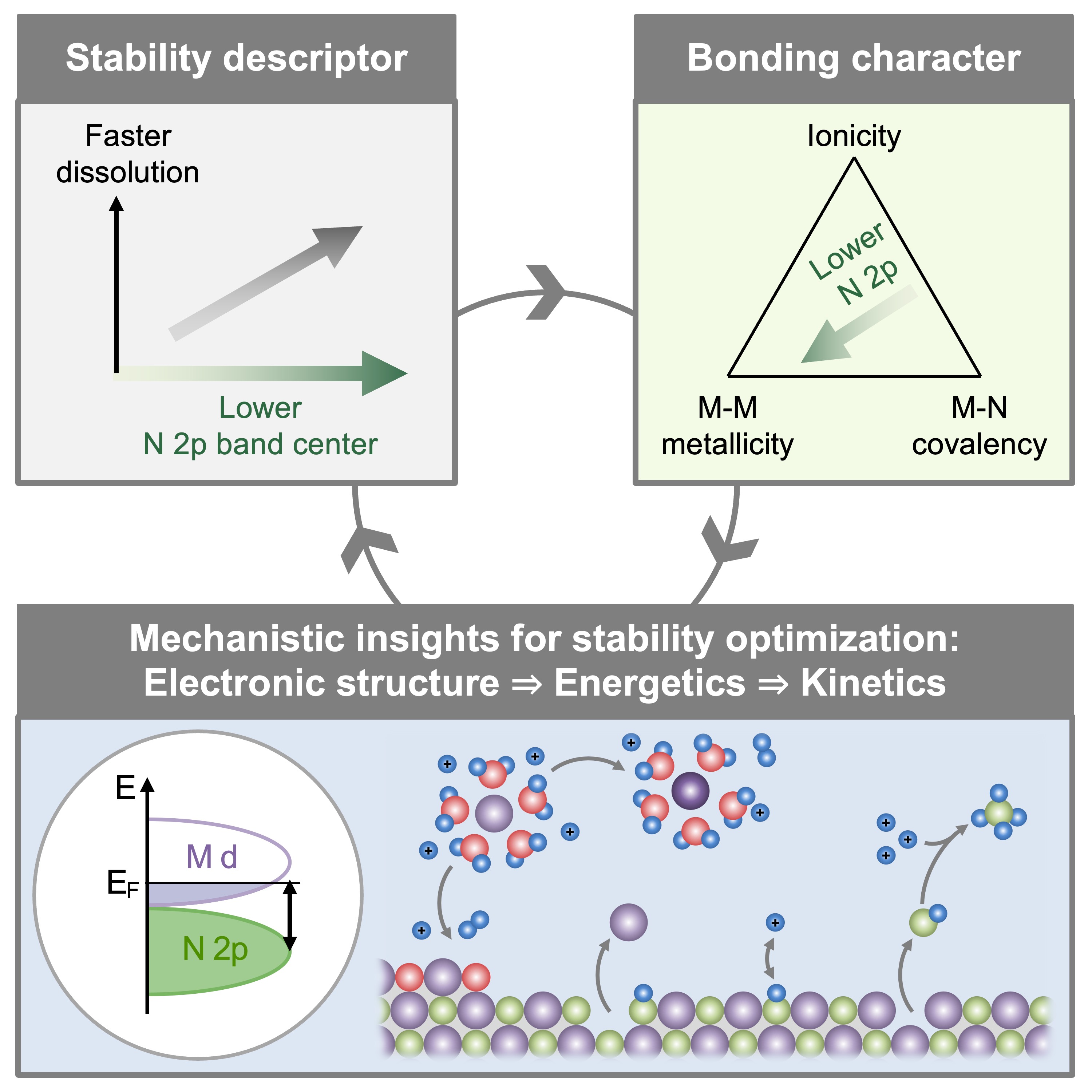 Design Principles for Transition Metal Nitride Stability and Ammonia Generation in AcidJoule (2023)
Design Principles for Transition Metal Nitride Stability and Ammonia Generation in AcidJoule (2023) -
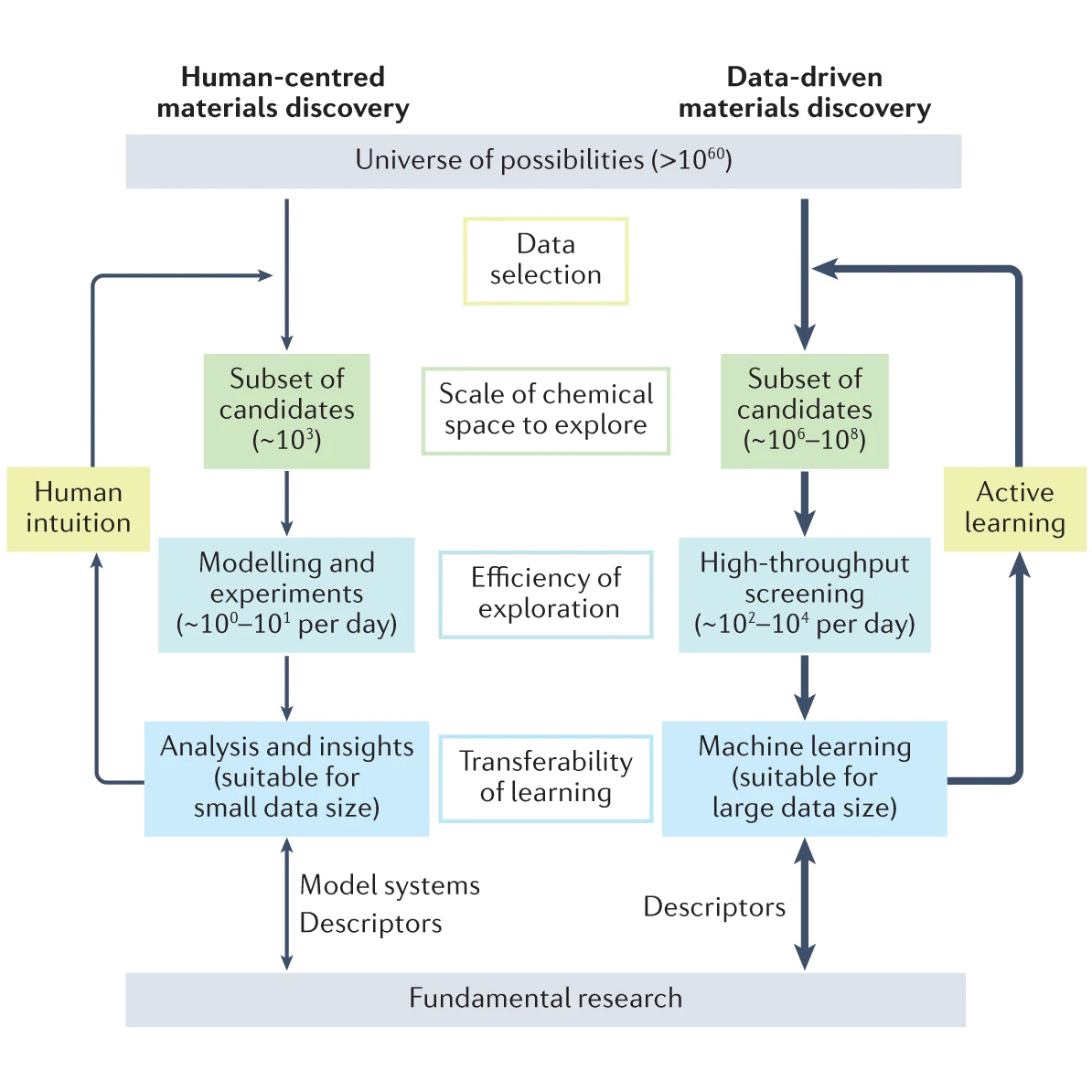 Human- and Machine-Centred Designs of Molecules and Materials for Sustainability and DecarbonizationNature Reviews Materials (2022)
Human- and Machine-Centred Designs of Molecules and Materials for Sustainability and DecarbonizationNature Reviews Materials (2022) -
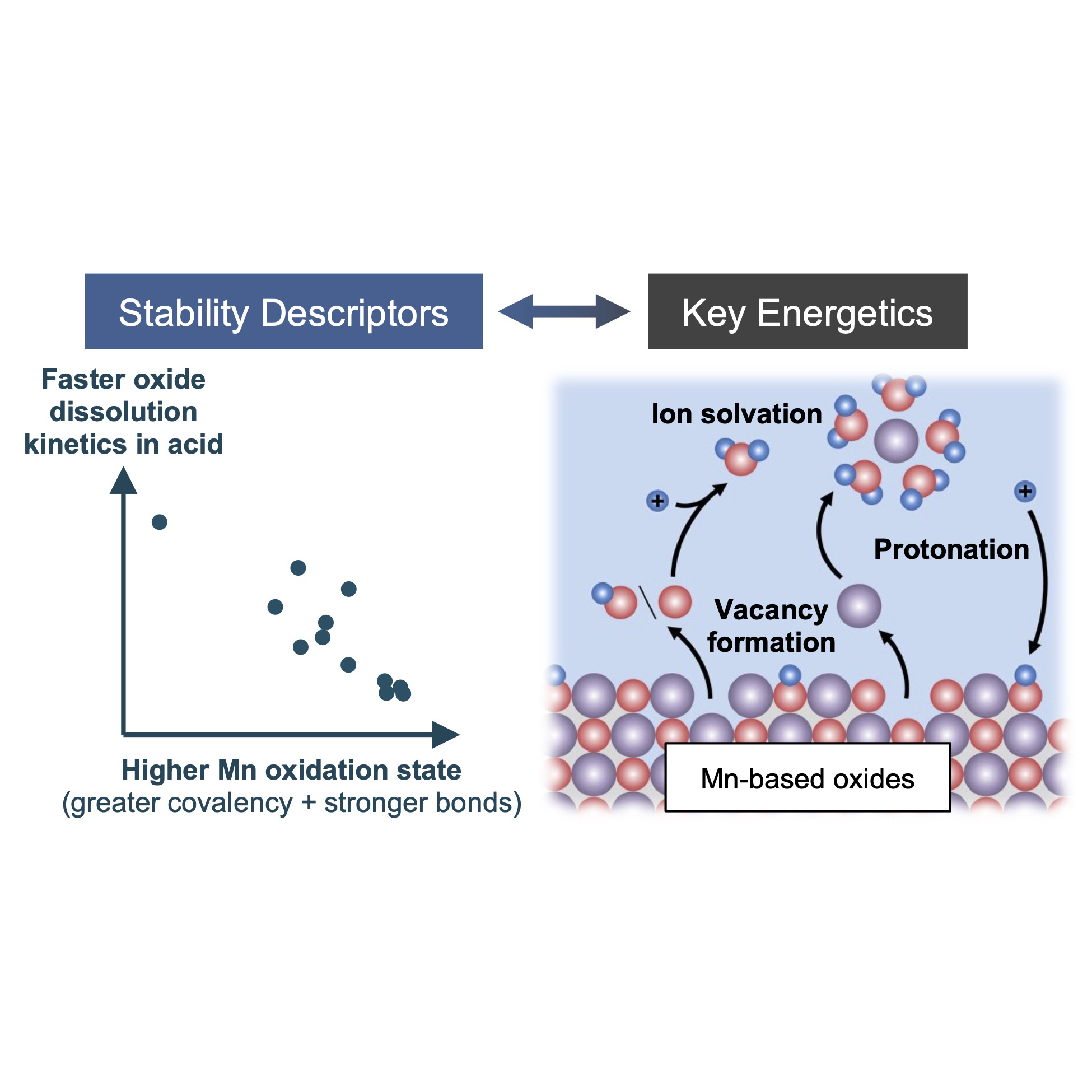
-
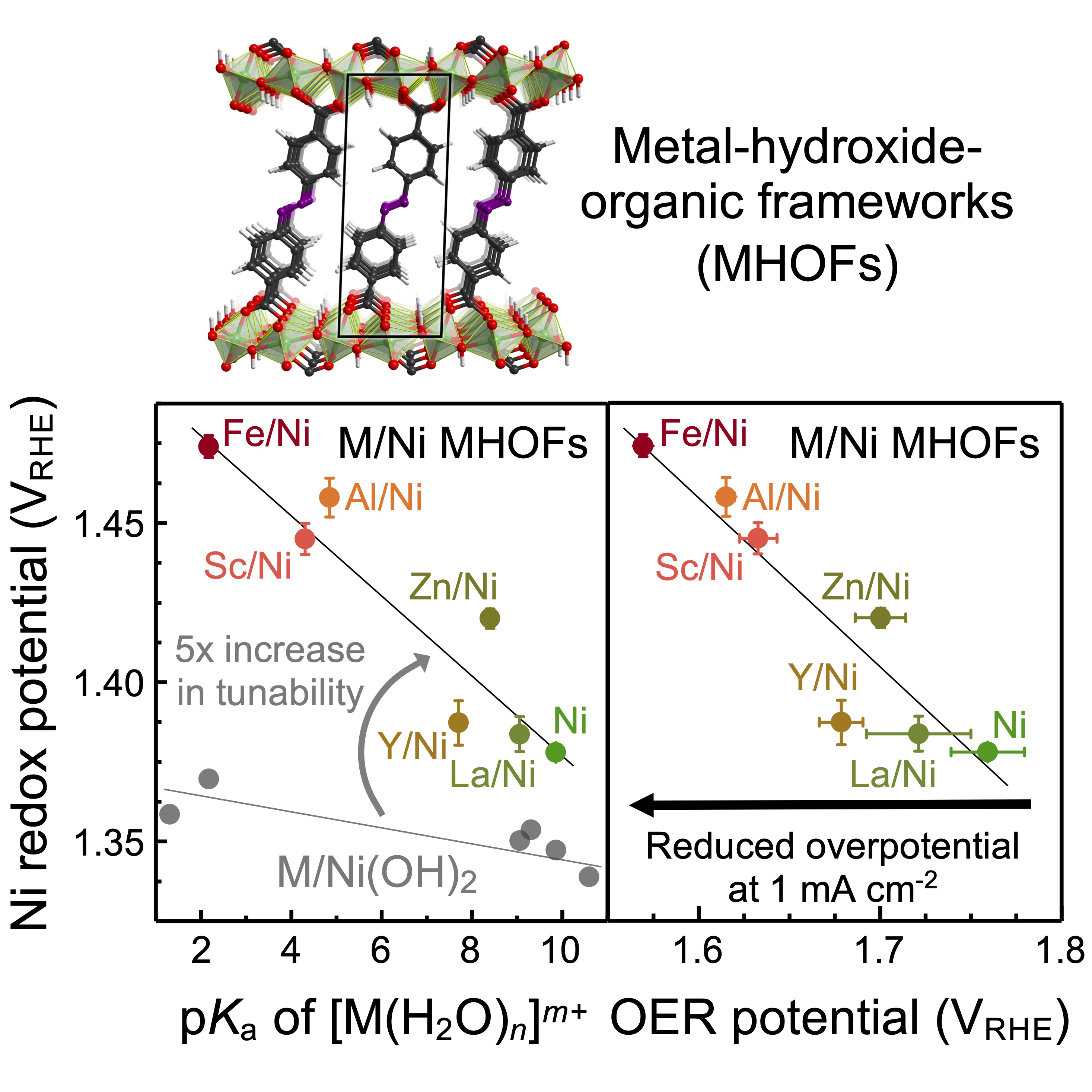 Tunable Metal Hydroxide–Organic Frameworks for Catalysing Oxygen EvolutionNature Materials (2022)
Tunable Metal Hydroxide–Organic Frameworks for Catalysing Oxygen EvolutionNature Materials (2022) -
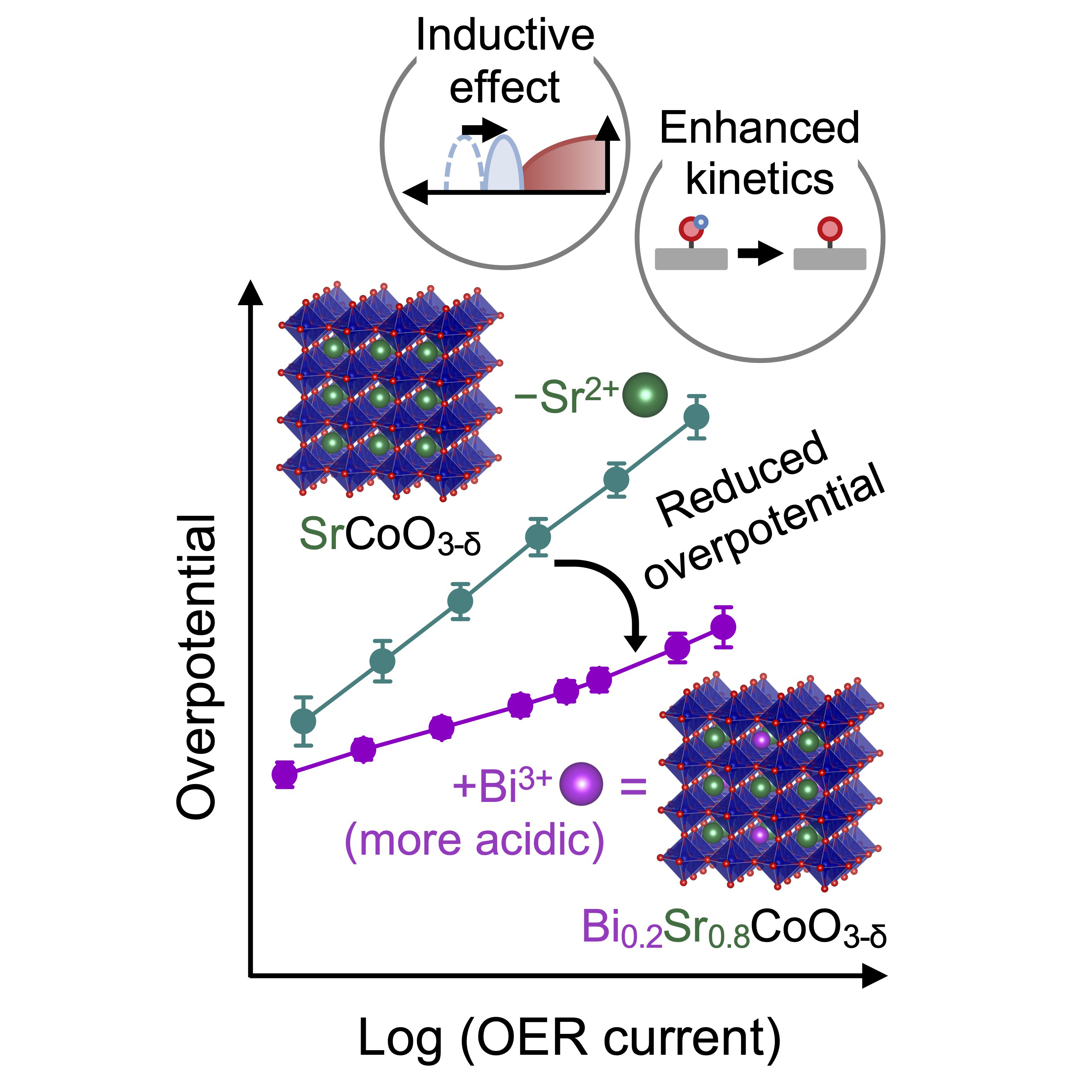 Bismuth Substituted Strontium Cobalt Perovskites for Catalyzing Oxygen EvolutionThe Journal of Physical Chemistry C (2020)
Bismuth Substituted Strontium Cobalt Perovskites for Catalyzing Oxygen EvolutionThe Journal of Physical Chemistry C (2020)